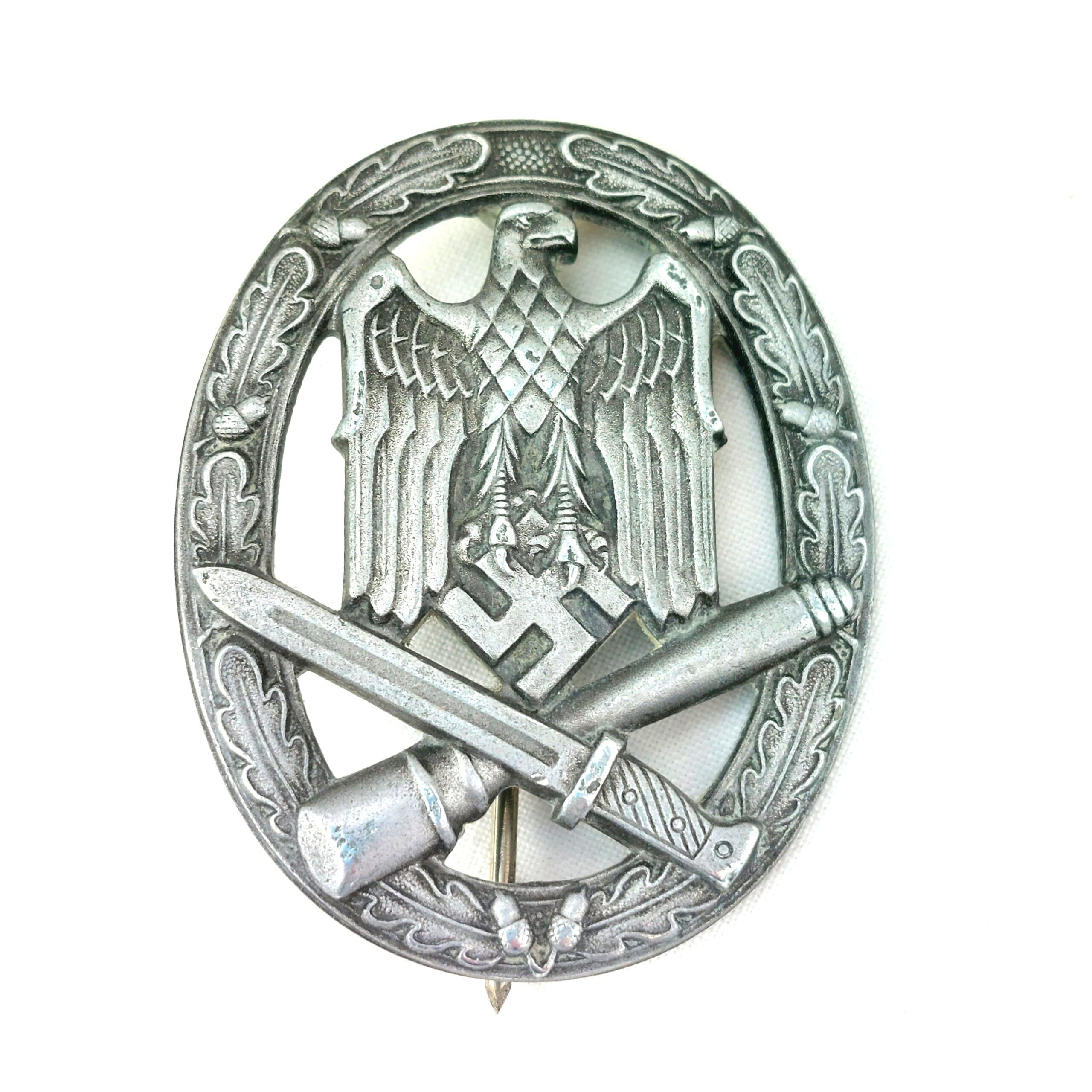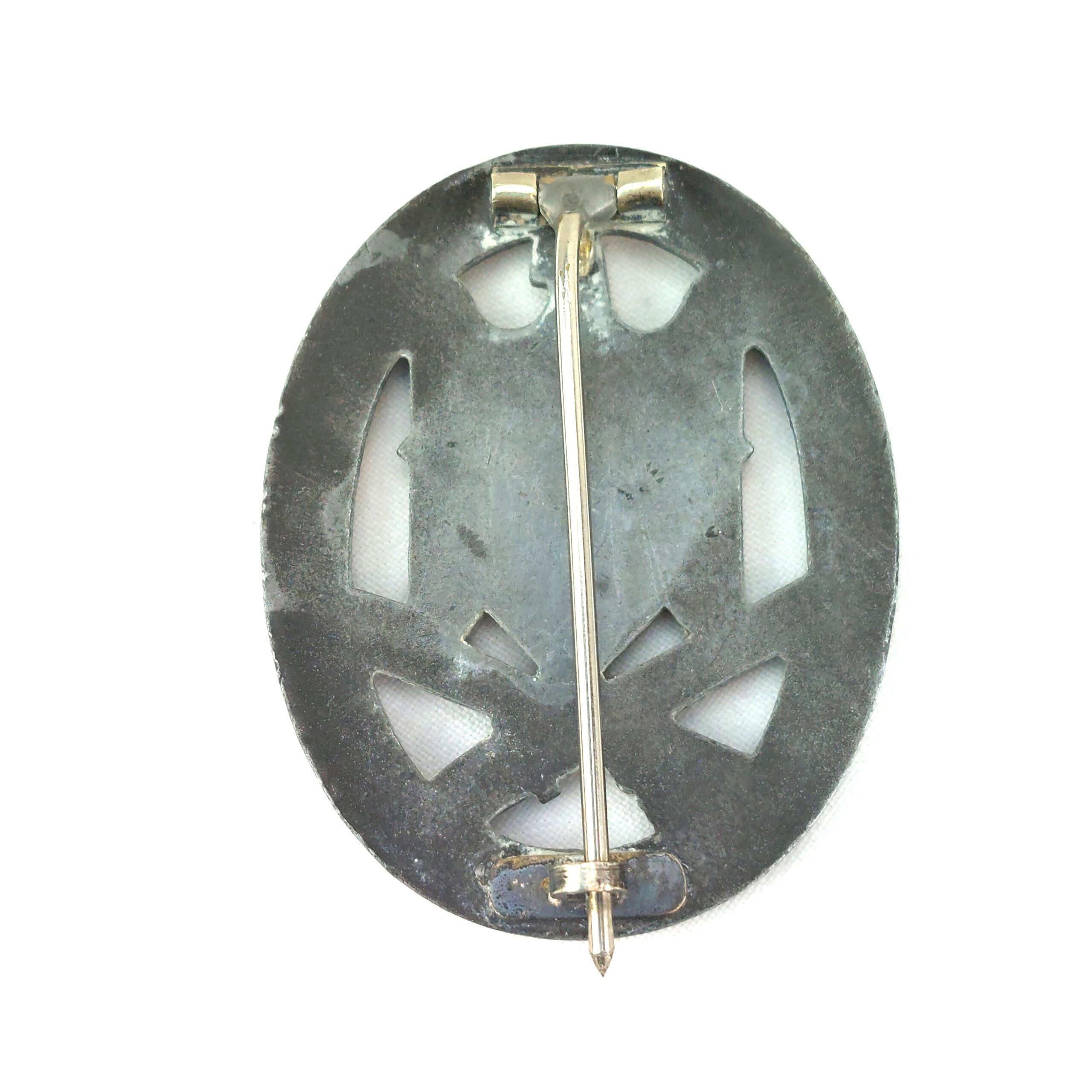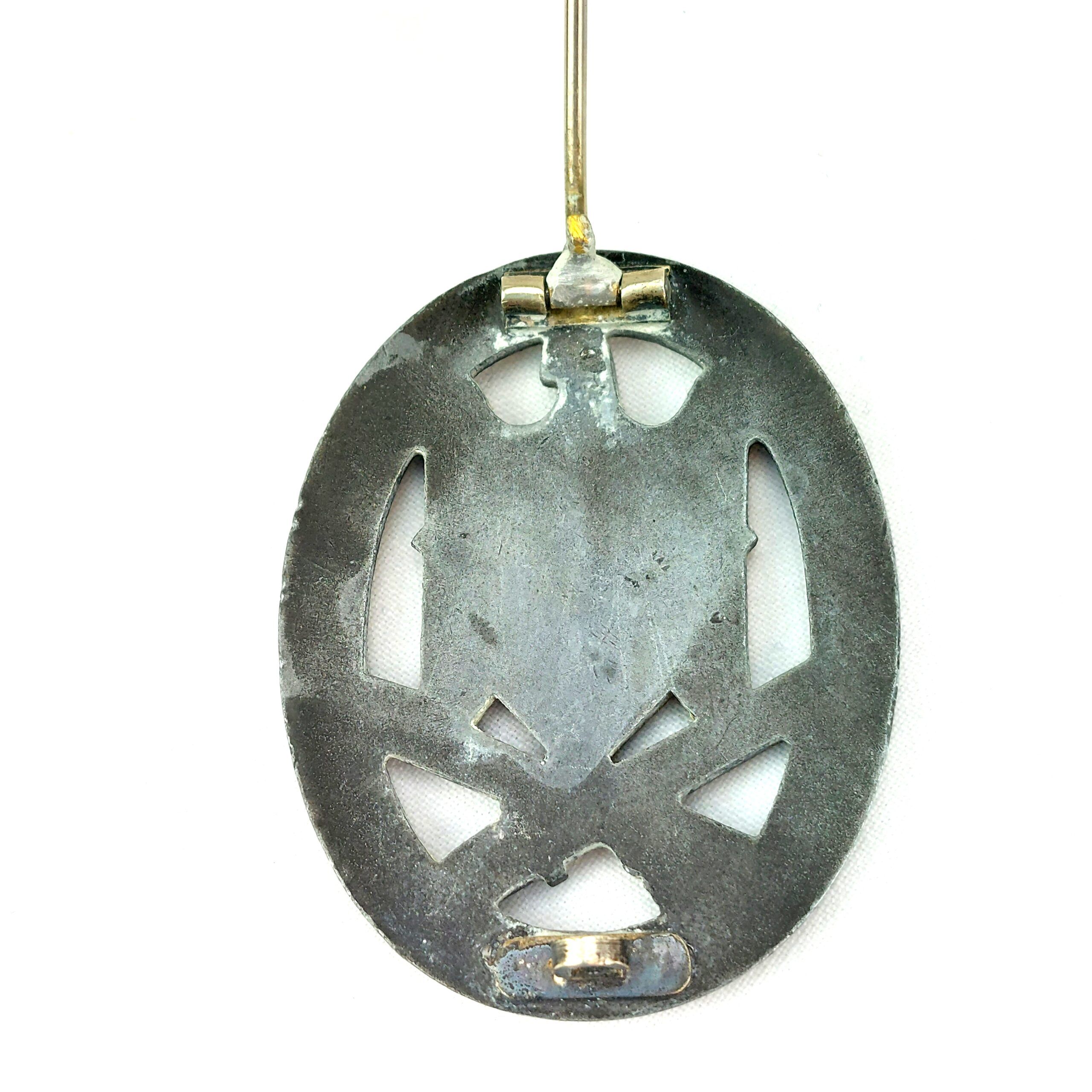*German, WW2, General Assault Badge, Solid Back, Unmarked*
This zinc example retains much of its original silver wash on the front, giving it an excellent appearance. While there is no maker’s mark on this badge, this is typical for later wartime production pieces. The back is solid.
General von Brauchitsch instituted the General Assault Badge on January 1, 1940. Designed by Ernst Peekhaus of Berlin, the badge was awarded to German soldiers who participated in infantry attacks but were not part of infantry units, thus not qualifying for the Infantry Assault Badge.
The badge features an oval disc with raised edges and a finely pebbled background, adorned with a wreath of oak leaves starting at two acorns at the base. A protruding stick grenade and bayonet separate the first two wreaths, with acorns filling the remaining separations. At the center is a Wehrmacht eagle clutching a swastika, surmounting a crossed bayonet and stick grenade. The reverse can be either solid or hollow, with a pin and catch for attachment to the uniform.
Originally designed for engineers, the General Assault Badge was also awarded to artillery, anti-tank, and anti-aircraft units supporting infantry assaults, as well as to medical personnel treating battlefield wounded. It was given for the single-handed destruction of eight tanks or armored vehicles until the Special Badge for Single-Handed Destruction of a Tank was introduced in March 1942.
Specific criteria included:
-
The recipient must not be eligible for the Infantry Assault Badge.
-
Participation in three infantry or armored assaults on three different days.
-
Participation in three infantry or armored indirect assaults on three different days.
-
Being wounded while fulfilling the second or third requirement.
-
Earning a decoration while fulfilling the second or third requirement.




